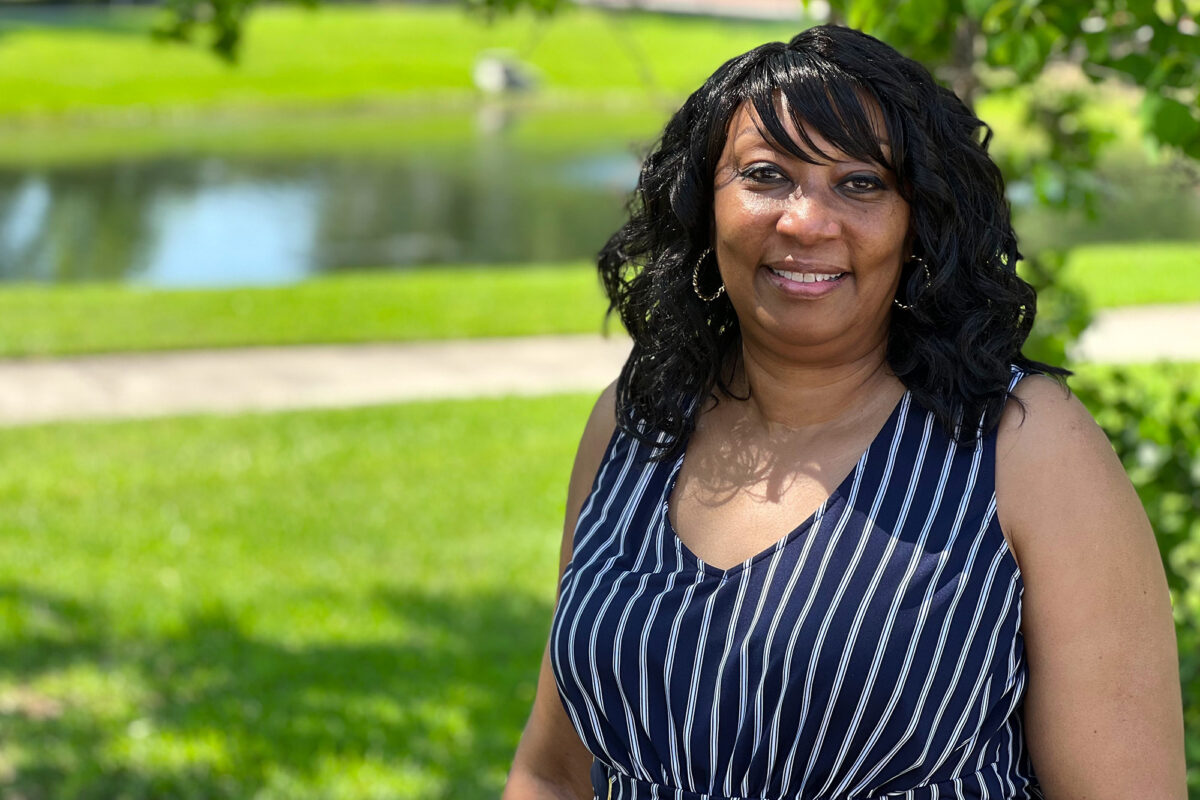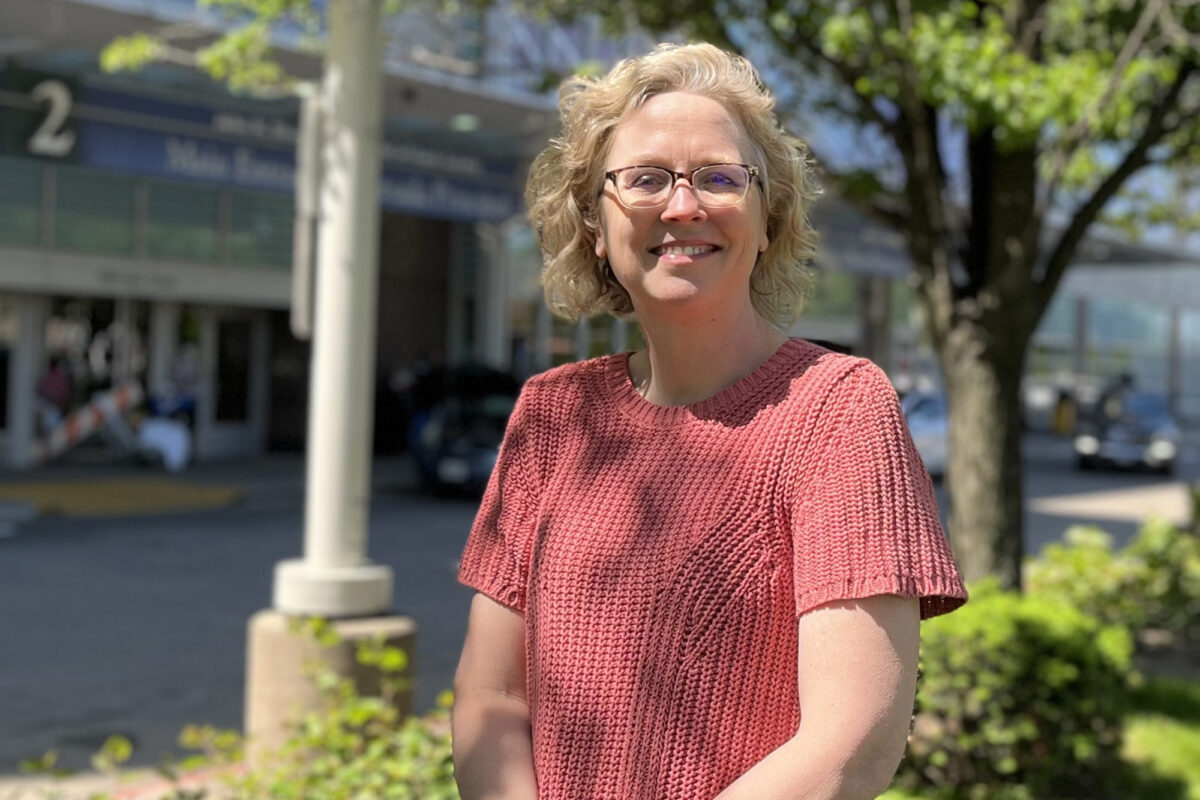With a grant from the Comer Family Foundation, Medical Home Network (MHN) launched in 2009 with a critical mission – to transform health care for Medicaid patients on Chicago’s South and West sides. At the heart and soul of MHN’s model are care teams hired from the communities they serve and employed by local primary care practices, also referred to as “medical homes.” They are seen by many in the community as angels who provide compassionate care to a population historically overlooked by the health care system.
A vital member of the care team is the Transition of Care (TOC) nurse, whose responsibility is to transfer a patient’s care from one setting or level of care to another – but they do much more. Their job is vital for vulnerable patients who are at risk for readmission to the hospital due to cognitive or functional impairment or chronic disease. TOC nurses help ensure continuity of care across different settings and make certain at-risk patients don’t fall through the cracks. They often go above and beyond to care for their patients – especially in safety net communities.
MHN nurses Joyce Butler & Angela Fitch share deeply personal experiences working to connect with patients who fall outside of the health care system.

"If someone doesn’t trust you then you have to listen and give them the opportunity to share their experiences. It can’t be an interaction that checks a box – that doesn’t build trust."
—Joyce Butler, Senior Manager of Clinical Integration Training & Orientation, Medical Home Network
“The opportunity to help people is what initially drew me to this work. I’m a big connector.”
—Angela Fitch, Mobile Transitions of Care Nurse, Medical Home Network

Q. Can you describe what you do?
Angela Fitch:
I am a mobile transition of care nurse working directly with patients who have been admitted to the hospital. I typically work with high-risk, complex patients with varying disease diagnoses. Often, they are using the ER as their primary care instead of engaging with their assigned medical home or primary care clinic. The opportunity to help people is what initially drew me to this work.
Prior to the COVID pandemic, I would see patients in person at up to four hospitals within a day, and I primarily worked in the Illinois Medical District. Many of our patients are not used to having insurance. I educate them about the benefits of their insurance and engaging with a primary care provider. I’m a big connector.
When a patient is transitioning home or to a skilled nursing facility, a lot can fall through the cracks. Through the MHN care management portal, we can view a patient’s 30-day activity, which helps us understand their situation. We do intense case management on patients who were recently hospitalized. I’m there to support what took place in the hospital, get them to the next place and then follow up to make sure they have the care and support they need.
I also work with the inpatient hospital team. Access to electronic hospital and medical records helps give me a 360-degree view of the patient. In many ways, I provide a safety net for these vulnerable patients. Oftentimes, their disease processes are very advanced because they are not receiving the proper care. And many of them don’t trust the health care system. So, we’re trying to level the playing field and provide good care to these people.
Our job is about improving the outcome of people’s lives. MHN is a wonderful company, and I am fortunate to have such a great job.
"When they begin to understand that I am truly here to help, the walls start to come down."—Joyce Butler
Q. How do you work to establish trust with patients?
Joyce Butler:
For me, it’s about having patience. If someone doesn’t trust you then you have to listen and give them the opportunity to share their experiences. I have learned in my career that communication has to be bi-directional. It’s important they feel and hear my sincerity and empathy before I discuss the reason for the call or visit. It can’t be an interaction that checks a box – that doesn’t build trust.
When they begin to understand that I am truly here to help, the walls start to come down. Even if they had to talk to three different people earlier that day, they start to realize this person is asking me how I feel and they can help me. Historically, health care has been about providers telling people what’s wrong and what they have to do. I want them to understand they have options – and that’s what helps build trust. It might happen at the first encounter, or it might not happen until the second encounter, but these strategies help bridge that gap. And sometimes we have to build a new bridge, because maybe the old bridge crumbled.
Q. Can you share a case that was a big win where you were able to bring someone to a place of trust?
Angela Fitch:
I recently had a phone call from a gentleman I’ve known since 2019. He’s been homeless and is a heroin user and has had about 40 ER visits and inpatient admissions. Each time he went through a rough patch I connected him with his medical home or an organization that helps find permanent housing for folks with behavioral health diagnoses, as well as substance use disorders. But the situation would always repeat itself.
One day out of the blue he called me and said, “Miss Angela, you’ll never guess where I am. I’m in my own apartment and just made bacon and eggs. And I’ve been clean for four months.” And this gentleman had been a user for 40 years! I was thrilled for him.
As Joyce said, you need to listen to people and first understand what is most pressing in their hearts and minds, then you can gradually address their medical issues. You must build trust first.
Many of our patients are homeless and really suffering. If we can alleviate that suffering and bring love and support into their lives – that is everything. It’s really a privilege that I have as a nurse. It’s very hard sometimes, but it’s also very satisfying.—Angela Fitch
Q. What’s the most difficult part of your job?
Joyce Butler:
There’s a lot of disparity in health care. Often it takes a nurse like Angie or me to really push the envelope for people to get the care they need. That’s the reason I’m so patient with people. They may have had a negative experience in the health care system like watching one of their family members die for no reason at all. You have to understand where they are coming from and what experiences have shaped their views.
Q. What do you wish people would remember about how to get better healthcare for themselves?
Angela Fitch:
I wish people would not be afraid to ask questions and not feel intimidated, but I know that’s hard. And most important, I want them to know there are people who deeply care and want the best for them.
Joyce Butler:
I would want them to know there is light at the end of the tunnel. It’s important not to silence their voices just because they received “no” the first hundred times they asked for what they needed. Like Angie said, there are people who are looking to help and give them the care they need and deserve.



